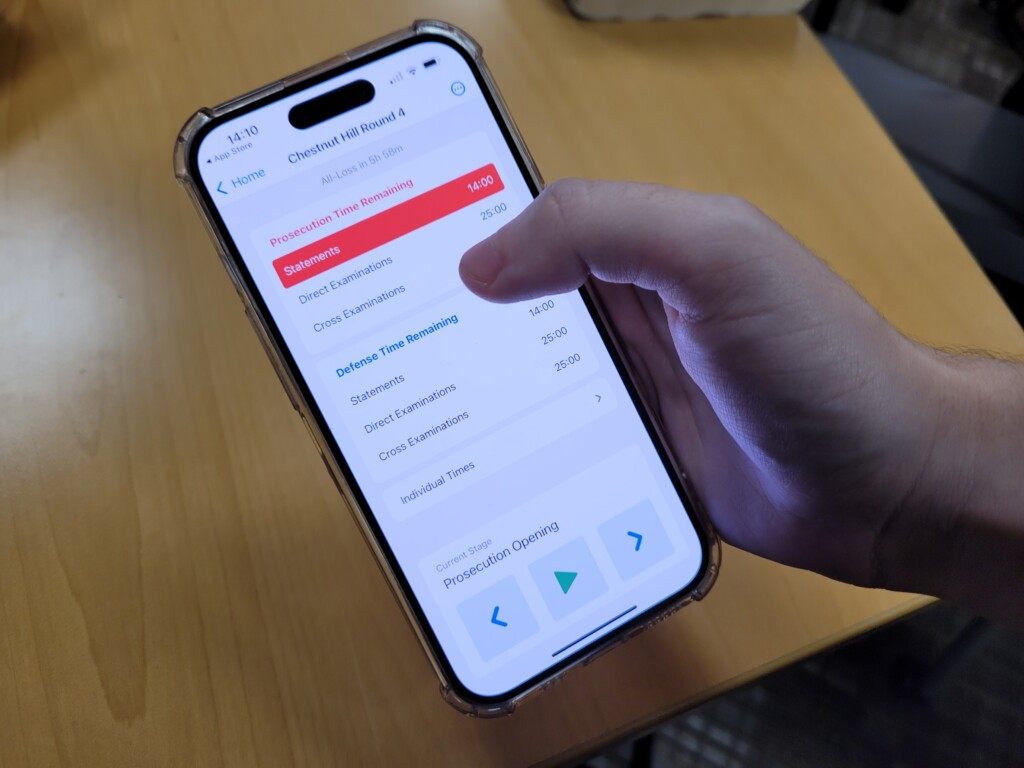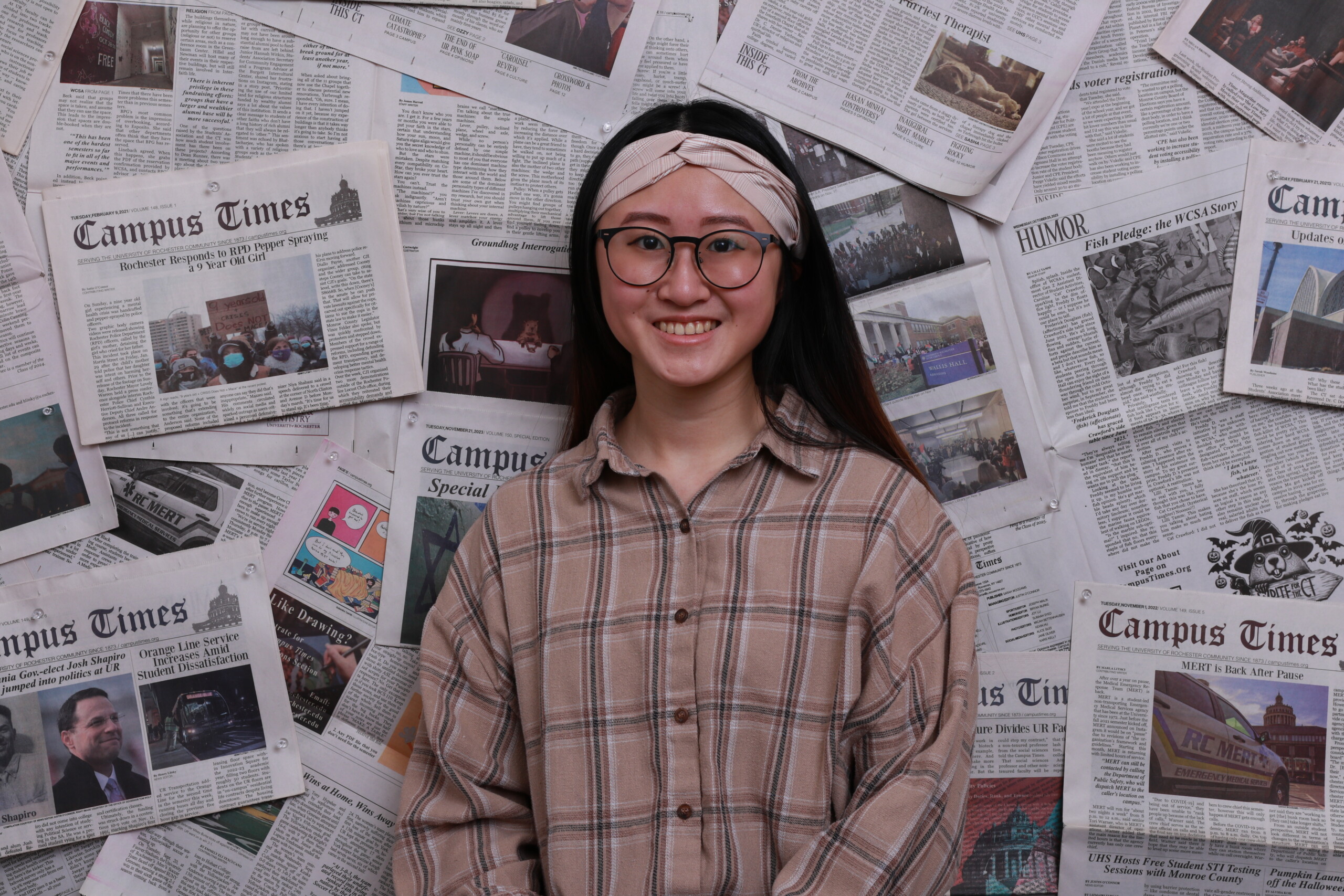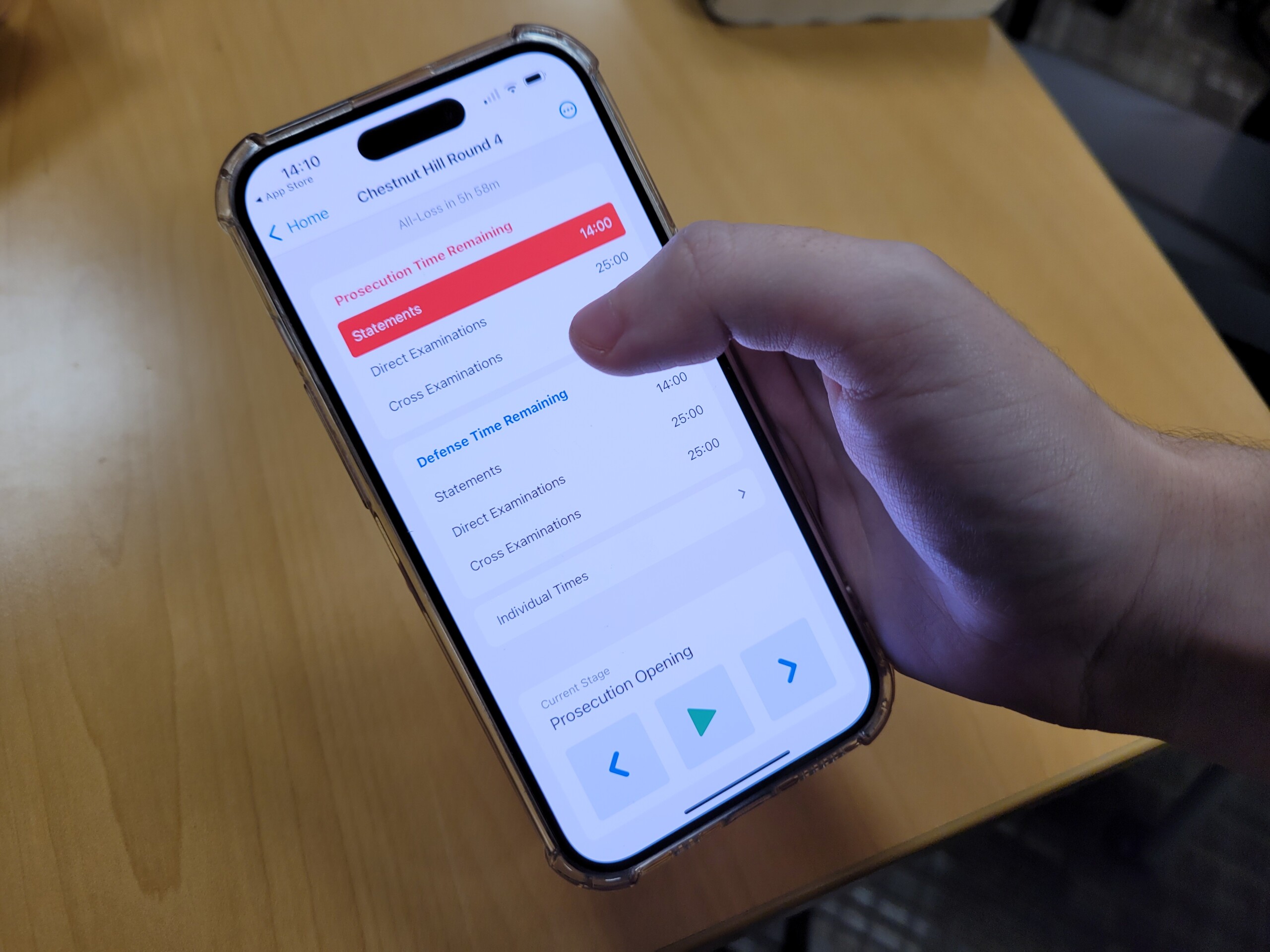Teams, rejoice. The mock trial world has a new handy app: Mock Trial Timekeeper is available on all iPhones. No more fumbling with handheld timers and tedious calculation during trials.
The face behind the “Mock Trial Timekeeper” app — and now niche mock trial microcelebrity — is junior Matan Kotler-Berkowitz. A major in Computer Science and Political Science, the one-man team developed the app for pure convenience’s sake, not anticipating to help thousands of “mockers” in the process.
Mock trial is a competitive high school and intercollegiate extracurricular that blends elements of theatre and simulations of real-court trials. Every event is timed, from cross-examinations to opening and closing statements given by each team. Typically, each opposing team has a timekeeper responsible for manning the stopwatches, alerting fellow members about how much time is left for their segment, and keeping the other team accountable.
Timekeeping is made complicated by the fact that the order of events, such as presenting evidence, alternate between plaintiff and defendant and can be interrupted by objections. The Mock Trial Timekeeper allows users to man a console of multiple clocks with an interface tailored specifically for collegiate mock, as well as custom-edit times after they’ve been logged to correct for discrepancies between teams.
The idea was born over summer 2023. Reading over the board minutes of the American Mock Trial Association (AMTA), Kotler-Berkowitz learned of a proposal that would permit the usage of cell phones during the trial for timekeepers. After emailing them on Sep. 7 with an initial description of his app, he got a green light from the AMTA chair, as long as the app would operate on airplane mode. On Sep. 15, the AMTA officially updated its rulebook to officially permit phones during trials.
Since its first download on Oct. 10, the Mock Trial Timekeeper has made Kotler-Berkowitz “very famous in a very, very niche community.” He doesn’t promote the app or monetize it; its popularity spreads primarily through word-of-mouth, he says. Since the season’s start at scrimmages and tournaments, teams’ timekeepers have been using the app — and on the analytics end, there’s a boost of roughly another hundred downloads every weekend when tournaments are held. Currently, the app has over 1,800 downloads.
Amid success, Kotler-Berkowitz himself, though, remains humble.
“The only reason that I think it’s so popular is because it was literally impossible to be made before I made it, because the rules forbade it,” he said. It was just “the combination of the right idea at the right time.”
After he made an initial post on the Mock Trial Confessions Facebook page — a gossip hub for all things mock across the country — announcing the app’s release, a request directed to the “Mock Trial Timekeeper guy” alerted him to the fact that the app did not work on certain older iPhone models. After troubleshooting, Kotler-Berkowitz realized the issue: On older iPhone models, when the battery saver is on, the timer clicks down slower. One second on newer iPhone models would be counted as 0.9 seconds on older models, causing a discrepancy between clocks. The issue has since been resolved.
Having the app go out to real people and be used in real competitions is both thrilling but daunting, and feedback from social media keeps Kotler-Berkowitz on his toes. Over the winter break, he developed a dark mode for the app and is working on migrating it to Android to accommodate more users.
In the meantime, at home base, Kotler-Berkowitz is Vice President of the University’s mock team and also a sub-team captain, responsible for giving feedback, assigning roles, and running the weekly practices. He’s a “jack of all trades,” he says. His impact in the “Moffice,” or mock trial office, while not defined by numbers and downloads, is immeasurable.
When asked about the future direction of the app and whether it’s a project he sees himself developing further, Kotler-Berkowitz laughs.
“Probably not,” he says. “Just because it’s kind of done.”



